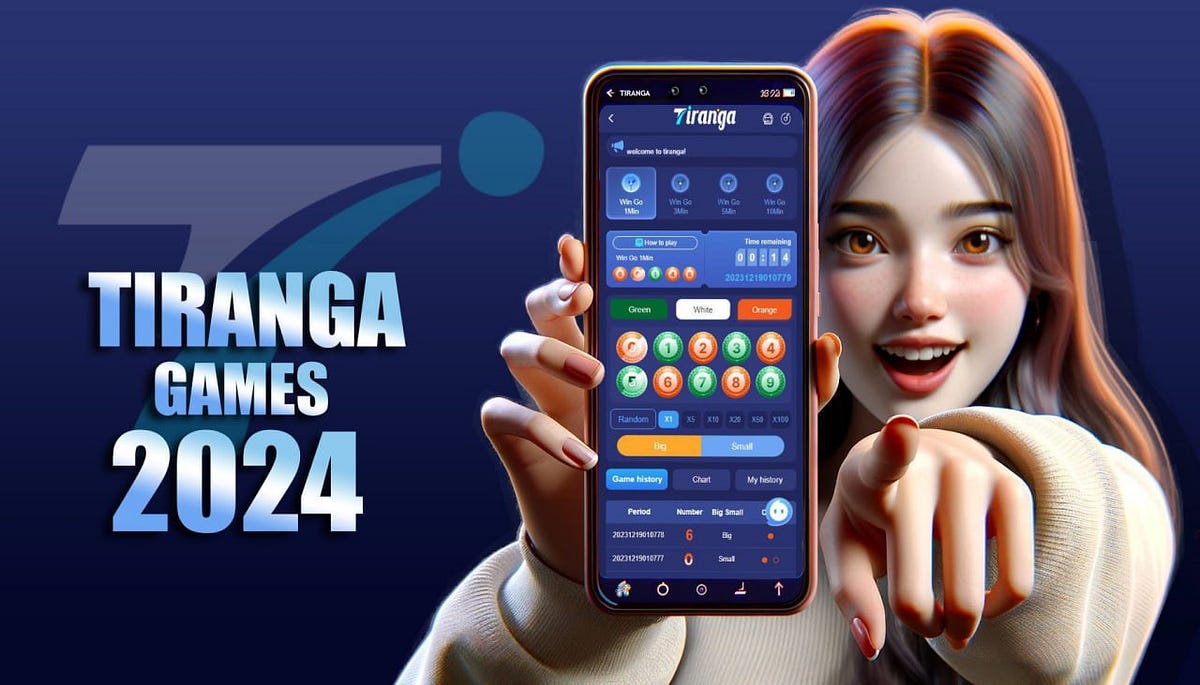
India, a land rich in diversity and tradition, celebrates a myriad of festivals throughout the year, each reflecting its unique cultural and historical heritage. Among the various festive activities, the Tiranga Game has emerged as a meaningful addition, particularly during celebrations tied to India’s history and national identity. This article explores the cultural significance of the Tiranga Game in Indian festivals, examining how it enhances festivities and fosters a deeper connection to India’s heritage.
The Tiranga Game: A Brief Overview
1. Concept and Gameplay
The Tiranga Game, named after India’s national flag, combines educational and recreational elements to celebrate the nation’s history. It involves a series of questions, challenges, and interactive activities related to Indian history, culture, and heritage. The game can be played in various formats, including board games, digital apps, and interactive workshops, making it adaptable to different settings and events.
2. Integration into Festivals
During Indian festivals, the Tiranga Game is often incorporated as part of the celebrations. Whether through organized events, family gatherings, or community activities, the game serves as an engaging tool to connect participants with the festival’s historical and cultural themes.
The Role of the Tiranga Game in Major Indian Festivals
1. Independence Day
Independence Day (August 15) is one of the most significant national celebrations in India, commemorating the country’s freedom from British rule. The Tiranga Game plays a special role during this festival by reinforcing the values of patriotism and historical awareness. Schools, community centers, and public events often include the game as a way to educate participants about the freedom struggle and the leaders who shaped India’s path to independence. Playing the game on Independence Day helps instill a sense of national pride and encourages a deeper understanding of the country’s history.
2. Republic Day
Republic Day (January 26) marks the adoption of the Indian Constitution and the transition to a republic. The Tiranga Game is a popular activity during Republic Day celebrations, where it is used to highlight the significance of the Constitution and the principles it upholds. Events might include game sessions that focus on key figures in the drafting of the Constitution, major constitutional amendments, and the fundamental rights and duties of Indian citizens. By engaging with these topics through the game, participants gain a better appreciation for the democratic values enshrined in the Constitution.
3. Gandhi Jayanti
Gandhi Jayanti (October 2) honors Mahatma Gandhi, the father of the nation, and his contributions to India’s independence movement. The Tiranga Game is often featured in celebrations of this day, with game content focusing on Gandhi’s life, philosophy, and the various movements he led. Incorporating the game into Gandhi Jayanti events helps to educate participants about Gandhi’s legacy and promotes discussions about non-violence and civil rights.
Cultural Benefits of the Tiranga Game in Festivals
1. Promoting Historical Awareness
One of the key cultural benefits of the Tiranga Game is its ability to promote historical awareness. By integrating the game into festival celebrations, organizers can highlight important historical events and figures in an interactive and engaging manner. This not only educates participants but also fosters a greater appreciation for the country’s heritage.
2. Fostering National Unity
Indian festivals often emphasize themes of unity and national pride. The Tiranga Game contributes to these themes by bringing people together through shared experiences and collective learning. Playing the game as a group activity encourages collaboration and mutual respect, reinforcing the sense of national unity and solidarity.
3. Enhancing Cultural Understanding
Festivals in India celebrate diverse cultural traditions and practices. The Tiranga Game, with its focus on historical and cultural content, provides an opportunity to explore and appreciate different aspects of Indian culture. Participants can learn about various historical periods, regional cultures, and significant events, thereby enhancing their cultural understanding and appreciation.
4. Engaging Younger Generations
With its interactive and entertaining format, the Tiranga Game is particularly effective in engaging younger generations. During festivals, children and teenagers often participate in game-based activities, making it easier to convey historical and cultural information in a format that resonates with them. This engagement helps ensure that the younger generation remains connected to their cultural heritage.
Implementing the Tiranga Game in Festival Celebrations
1. Community Events
Local community events are ideal settings for incorporating the Tiranga Game. Organizers can set up game stations, host tournaments, and encourage community members to participate in historical quizzes and challenges. This approach not only enhances the festive atmosphere but also provides an educational experience for attendees.
2. School and College Functions
Educational institutions can integrate the Tiranga Game into their festival-related activities. Schools and colleges can organize competitions, workshops, and interactive sessions centered around the game. This integration helps students learn about historical events and figures while participating in festive celebrations.
3. Family Gatherings
The Tiranga Game can also be a fun and educational activity for family gatherings during festivals. Families can play the game together, fostering a sense of togetherness and shared learning. This approach allows families to bond over a common interest while exploring India’s rich history.
Conclusion
The Tiranga Game holds significant cultural value when incorporated into Indian festivals. By combining education with entertainment, the game serves as a powerful tool for promoting historical awareness, national unity, and cultural understanding. Its presence in celebrations such as Independence Day, Republic Day, and Gandhi Jayanti enriches the festive experience, making history and heritage more accessible and engaging for participants.
As India continues to celebrate its diverse festivals, the Tiranga Game offers a meaningful way to connect with the country’s past while enjoying the present. Through its interactive format and focus on historical content, the game plays a vital role in preserving and celebrating India’s cultural legacy, ensuring that the values and stories of the past remain relevant and impactful for future generations.